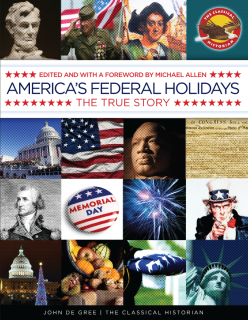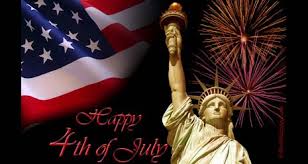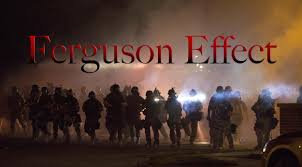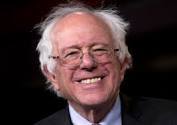By John De Gree of The Classical Historian
On July 4th, 1776, delegates at the Continental Congress adopted “The Declaration of Independence.” This declaration stated that the 13 English colonies were now formally separated from Great Britain and part of a new country, the United States of America. The chief writer of the declaration, Thomas Jefferson, wrote the ideals of the young nation and explained to the world why the states were breaking with the mother country, Great Britain. Throughout the 1600s and 1700s, English colonists slowly grew to see themselves as something different from English. At the founding of the first English colony in 1607, the English colonists of America were proud Englishmen with English rights. At the same time, however, the English colonists enjoyed greater freedoms than the people in England. In America, for example, many colonists enjoyed the right to vote, to choose their own legislature, and had greater economic freedoms than in England. From 1754-1763, the English colonists fought alongside the British in the French and Indian War. In this worldwide conflict, France and England fought over control of North America. In America, a young George Washington distinguished himself as a capable and valiant officer. Washington successfully led a British retreat, after the British General Braddock was killed at the Battle of Monongahela. The British won the war and established itself as the dominant power of North America. The French and Indian War was a spark to America’s independence. During the war, many English colonists realized they were different than the British soldiers who they fought with. Often, the British officers looked down upon the colonists and did not respect their customs and fighting. After the war, King George III and Parliament faced a huge war debt. To pay off the debt, the English chose to levy taxes on the English colonists. As the colonists were not used to being taxed without voting on it, they protested. This eventually led to the separation of the two nations. In the Declaration of Independence, Jefferson writes the ideals of the new nation, “We hold these truths to be self evident: That all men are created equal.” The notion that all men are created equal involves a number of ideas. The first is that there is one Creator of all men. Jefferson and the Founding Fathers believed in one God who created all things. The second idea in this statement is that the Creator gave all humans political equality. At birth, people were meant to have the same rights. One person was not intended to have more rights than another. In the British system, and in much of the world at the time, certain people in society had more rights than others. In the new United States of America, the ideal was for political equality. At the time of the Declaration, there were slaves in America. However, Jefferson’s writing on political equality was his vision of an ideal. It is important for a people to have an ideal to strive for. Eventually, the U.S.A. would rid itself of slavery, and black Americans would enjoy equal political rights. Does political equality mean economic equality? Some people have falsely argued this. Having the same political rights does not mean that a people will be equal in every way. Jefferson did not write that all people will have the same amount of money for example. This would require the end of freedom, as some people would have their property taken from them by force. Jefferson continues to write in the Declaration “that they are endowed by their Creator with certain unalienable rights; that among these are life, liberty, and the pursuit of happiness.” These are commonly referred to as the “natural rights.” They are natural because man has them through birth. No government gives man these rights. They are his naturally, from God. The right to life means that nobody is allowed to take a human life. Murder is against the law. Liberty means the right to political freedoms, such as the right of free speech, free press, and the right of religious freedom. The pursuit of freedom had commonly been understood to mean the right to own private property, but it also seems to imply more than this. In most places of the world in the 1700s, people were not allowed to own property. Property was the right held only by the ruler, or by the ruling class. In the new country of the U.S.A., the American Founding Fathers firmly believed in every man’s right to own land. This right allowed a person independence from government, and the ability to establish a family and enjoy the fruits of one’s labor. On July 4th, Americans celebrate Independence Day by spending time with family, watching fireworks, listening to speeches given my military and political leaders, and by taking time off from life’s work. July 4th may be called America’s first federal holiday, because on this day our country established itself as an independent country. On July 4th, take the time to read out loud the Declaration of Independence, and reflect on all of the work America’s Founding Fathers put into establishing our country, as well as all of the sacrifices Americans have made for their country over more than two centuries. Great Discussion Questions You Can Ask Your Kids
Lesson Suggestions for All Ages: On July 4th, the family should read out loud the Declaration of Independence, and the parents should explain why they think it was important for the American Founding Fathers to break from Great Britain. Special holidays are excellent opportunities for the adults to give to their children words of wisdom. Suggestions for Students: Have the students create a very simple 5 Question quiz on the American Revolution. Have the students try to ask as many people these questions, keeping track of the score of each person. After asking at least 10 people, have the students report to the teacher how much, or how little, these 10 people know. The idea behind this is to find out how much Americans know and don’t know about the beginning of their country. Below is a list of interesting facts and figures on Independence Day from the U.S. Census, 2012. 2.5 million In July 1776, the estimated number of people living in the newly independent nation. 313.9 million The nation's estimated population on this July Fourth. Flags $3.6 million In 2011, the dollar value of U.S. imports of American flags. The vast majority of this amount ($3.3 million) was for U.S. flags made in China. $663,071 Dollar value of U.S. flags exported in 2011. Mexico was the leading customer, purchasing $80,349 worth. $302.7 million Dollar value of shipments of fabricated flags, banners and similar emblems by the nation's manufacturers in 2007, according to the latest published economic census statistics. Fireworks $223.6 million The value of fireworks imported from China in 2011, representing the bulk of all U.S. fireworks imported ($232.5 million). U.S. exports of fireworks, by comparison, came to just $15.8 million in 2011, with Australia purchasing more than any other country ($4.5 million). $231.8 million The value of U.S. manufacturers' shipments of fireworks and pyrotechnics (including flares, igniters, etc.) in 2007. Patriotic-Sounding Place Names Thirty-one places have “liberty” in their names. The most populous one as of April 1, 2010, was Liberty, Mo. (29,149). Iowa, with four, has more of these places than any other state: Libertyville, New Liberty, North Liberty and West Liberty. Thirty-five places have “eagle” in their names. The most populous one is Eagle Pass, Texas, with a population of 26,248. Eleven places have “independence” in their names. The most populous one is Independence, Mo., with a population of 116,830. Nine places have “freedom” in their names. The most populous one is New Freedom, Pa., with a population of 4,464. One place has “patriot” in its name. Patriot, Ind., has a population of 209. Five places have “America” in their names. The most populous is American Fork, Utah, with a population of 26,263. Early Presidential Last Names 138 Ranking of the frequency of the surname of our first president, George Washington, among all last names tabulated in the 2000 Census. Other early presidential names that appear on the list, along with their ranking, were Adams (39), Jefferson (594), Madison (1,209) and Monroe (567). The British are Coming! $107.1 billion Dollar value of trade last year between the United States and the United Kingdom, making the British, our adversary in 1776, our sixth-leading trading partner today. Fourth of July Cookouts Almost 1 in 3 The chance that the hot dogs and pork sausages consumed on the Fourth of July originated in Iowa. The Hawkeye State was home to 19.7 million hogs and pigs on March 1, 2012. This estimate represents almost one-third of the nation's estimated total. North Carolina (8.6 million) and Minnesota (7.6 million) were also homes to large numbers of pigs. 7.2 billion pounds Total production of cattle and calves in Texas in 2011. Chances are good that the beef hot dogs, steaks and burgers on your backyard grill came from the Lone Star State, which accounted for about one-sixth of the nation's total production. And if the beef did not come from Texas, it very well may have come from Nebraska (4.6 billion pounds) or Kansas (4.0 billion pounds). 6 Number of states in which the value of broiler chicken production was estimated at $1 billion or greater between December 2010 and November 2011. There is a good chance that one of these states — Georgia, Arkansas, North Carolina, Alabama, Mississippi or Texas — is the source of your barbecued chicken. Please Pass the Potato Potato salad and potato chips are popular food items at Fourth of July barbecues. Approximately half of the nation's spuds were produced in Idaho or Washington state in 2011. By John De Gree of www.classicalhistorian.com Copyright 2016. All Rights Reserved.
5 Comments
By John De Gree of The Classical Historian
For over two years, since August 2014, violent criminal activity has increased at an alarming rate in American cities, affecting minorities the most. FBI Director James Comey thinks the main cause of this violent crime wave is the “Ferguson Effect.” The Ferguson Effect refers to how policemen have changed how they deal with citizens after the events in Ferguson, Missouri. President Obama disagrees that there is a Ferguson Effect. Researcher and writer Heather Mac Donald of the Manhattan Institute was the first to name and define the Ferguson Effect and has done extensive research on this subject. In one incident in August 2014, suspect Michael Brown repeatedly attacked a policeman in Missouri and attempted to steal his gun. After refusing to listen to the police officer, Michael Brown charged with his head lowered, and was shot dead. Local prosecutors and President Obama’s Department of Justice investigated and concluded that the police officer acted appropriately to defend himself. Unfortunately, many asserted the policeman was a white racist and killed a black man because of his race. There has never been any evidence to back up this claim of racism. Immediately after the shooting, many falsely claimed the policeman was a racist, and rioters destroyed parts of Ferguson, Missouri, burning business, looting, and attacking policemen. Political leaders made statements that appeared they approved of the rioting. Nearly a year after the incident, and after the Department of Justice investigated, President Obama stated, “We may never know what really happened in Ferguson,” implying the findings of the Justice Department were not complete. After the events in Ferguson, “Black Lives Matter” was born. Black Lives Matter is an organization that aims to teach others that policemen are targeting blacks, killing blacks, racists, and that America needs to radically change to stop the murder and oppression of blacks by policemen. Black Lives Matter (BLM) rejects the American justice system’s findings in the Michael Brown case. Members of BLM organize protests, write articles, and spread their beliefs in news media. Beginning in the 1990s, police departments, beginning with the NYPD, implemented changes in how policemen worked and the rate of crime drastically declined. Police became actively involved in preventing crime, confronting those who appeared to be planning crime, frisking suspects, and handing out infractions for minor infractions, like vandalism. Combined with structural changes within the departments, these actions led to a dramatic drop in crime. However, since the incident in Ferguson and the birth of Black Lives Matter, Researcher Heather MacDonald asserts that policemen have changed how they work, and this has been the main reason for the major spike in violent crime. After the negative press coverage from the Ferguson incident, policemen are now unable, or unwilling, to continue their work as before. When working, especially in major cities with large populations of minorities, policemen are confronted with loud, jeering mobs. Bottles or rocks are thrown at policemen working in the most dangerous areas. Because of this hostile, anti-police atmosphere, policemen are afraid to act because they might be accused of racism. This is known as the Ferguson Effect. Many claim one result of the police change has been a steep increase of violent crime in America. Since 2015, in the nation’s largest cities, murders are up 17 percent. Milwaukee had its deadliest year in a decade, and Baltimore’s per capita homicide rate was the highest ever, with a 72% increase. Murders are up in Cleveland by 90% over the previous year. President Obama disagrees with FBI Director Comey whether there is a Ferguson Effect and if there is a spike in violent crime. Obama has announced that there is no Ferguson Effect, and he appears to agree with BLM that there is a racist problem in American police forces. Comey, who works under President Obama, stands by his argument that it is because of the Ferguson effect that policemen have backed off from the proactive police procedures that limit crime. Great Discussion Questions You Can Ask Your Kids
By John De Gree of www.classicalhistorian.com Copyright 2016. All Rights Reserved. By John De Gree, of The Classical Historian
In a rare event in American political history, a self-proclaimed Socialist is one of the major candidates for the U.S. Presidency. Socialist Senator Bernie Sanders (Vermont) has competed very well against Senator Hillary Clinton (New York) for the Democratic nomination for the President. Many Americans do not know what is a Socialist. Socialists believe that society functions best when members are forced to share economic goods. This means, for example, that if someone earns $100,000 and another earns $10,000 a year, both should enjoy the $110,000. Socialists think it is unfair that one person should benefit more than another because of his ability, effort, or circumstances in life. Socialists think that the government should determine how much money a person is allowed to keep and how much he should give to others. Some socialists think all people should have the same income, where other socialists think some people can earn more than others. But all socialists agree that the government should determine a minimum amount that each person in society should earn, regardless of his situation. A socialist thinks that it is the role of government to make decisions regarding private property. For example, if a family has 10 children the socialist thinks that the government should make sure the larger-sized family has a large enough house for the bigger family. This could mean that taxes from the family with 2 children will go to the family with 10 children to support them. A socialist thinks that the individual rights of the citizen come second to the needs of the state, and it is the role of the government to determine what are the needs of the state. We have many examples in history over the last 200 years to help us understand what a socialist state may decide is the need of the state. In the Union of Soviet Socialist Republics (U.S.S.R.) in the 1900s, the government decided that religion was an enemy of the people. The U.S.S.R. forbade religious practice and tortured and murdered millions of people to enforce the ban on religious practice. Because of the tragic consequences of the U.S.S.R., many Americans fear socialism. Senator Sanders describes his political philosophy as democratic socialism. Sanders does not want government to take away others’ property or severely limit individual’s rights, but he would like government to heavily tax those who are successful, and he wants government to distribute this money evenly. Unlike in the U.S.S.R., where people were forced to follow the government or die, Sanders wants people in the U.S.A. to vote and choose a government that will raise taxes. Sanders thinks that the amount of money in a society is fixed, and it is the government’s job to distribute it evenly among all. Great Questions You Can Ask Your Kids 1. Who is Bernie Sanders? 2. What is a socialist? 3. What happened in the U.S.S.R. in the 1900s? 4. What is democratic socialism? 5. What do you think of socialism? By John De Gree of www.classicalhistorian.com Copyright 2016. All Rights Reserved. #theclassicalhistorian |
John De GreeJohn De Gree writes the current events with a look at the history of each topic. Articles are written for the young person, aged 10-18, and Mr. De Gree carefully writes so that all readers can understand the event. The perspective the current events are written in is Judeo-Christian. Receive Articles and Coupons in Your EmailSign Up Now
For Email Marketing you can trust. Archives
June 2024
Categories
All
|
|
SUPPORT
|
RESOURCES
|
|






 RSS Feed
RSS Feed



